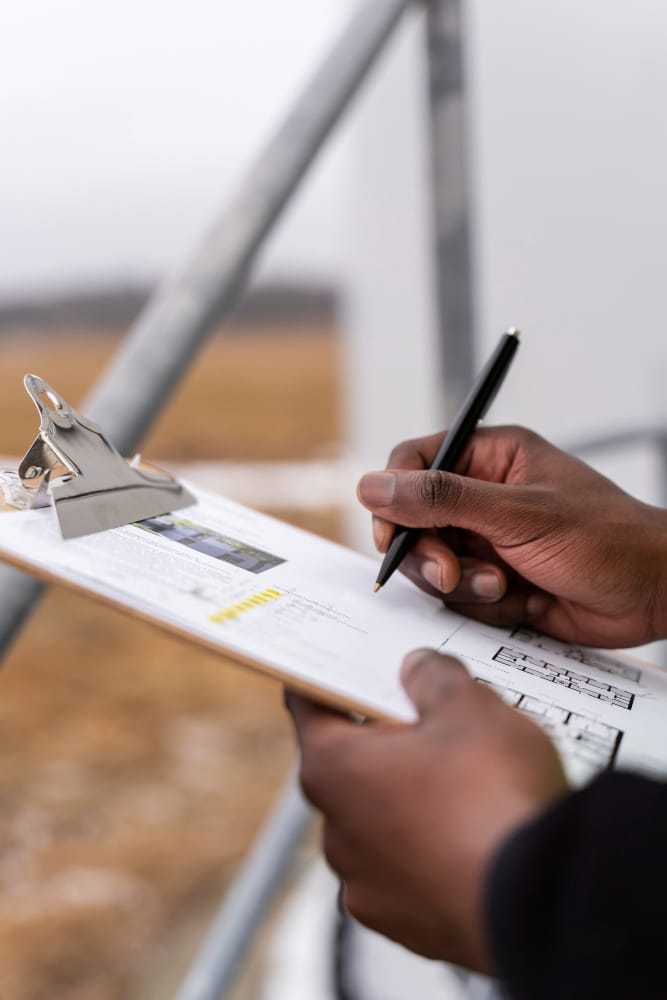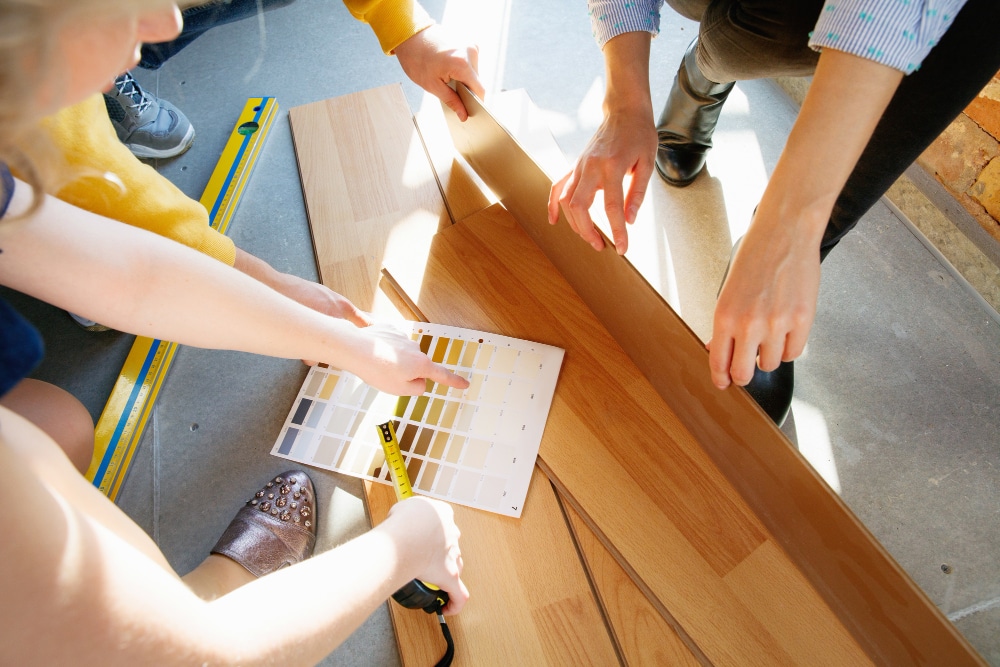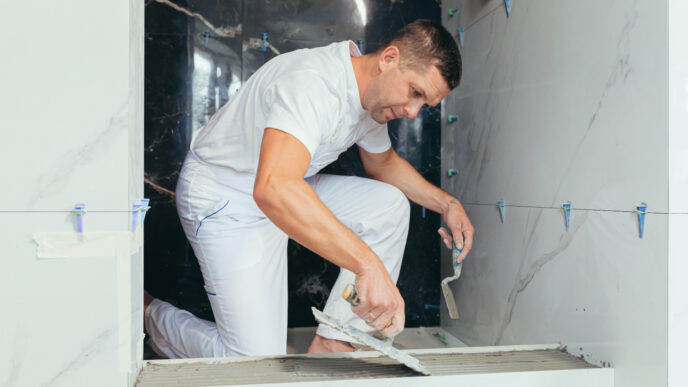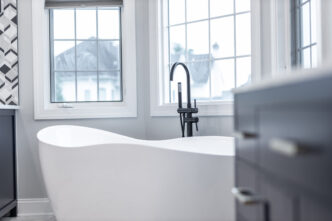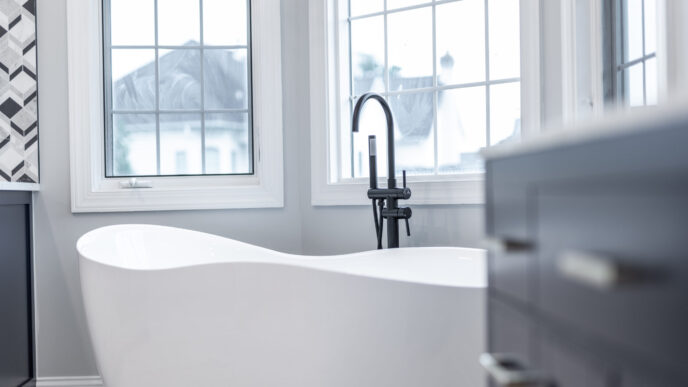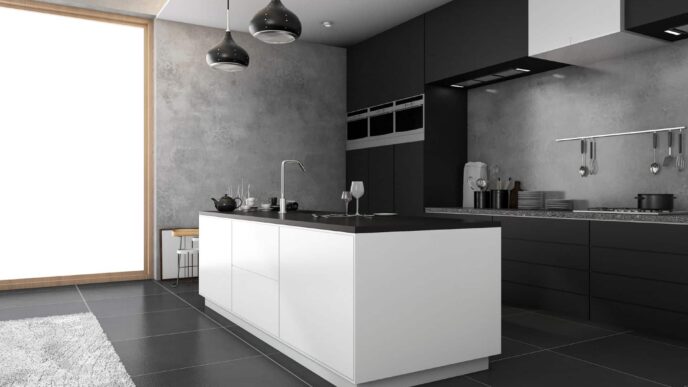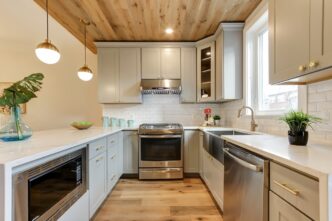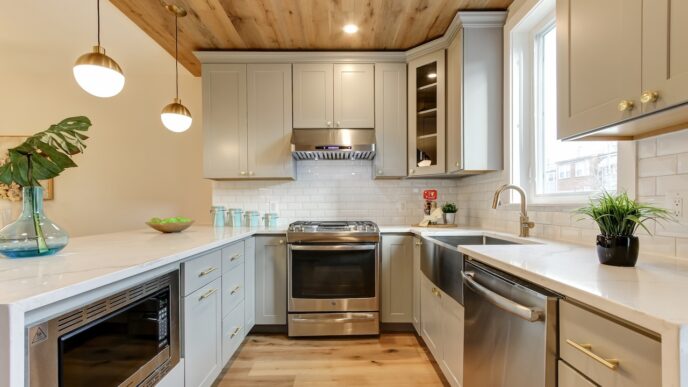People turn to kitchen and bathroom remodeling projects to breathe new life into their homes. However, none of this can happen if remodeling permits are not understood and ironed out. This guide will explore the cost of permits, their significance for different types of remodels, and why specialized inspections might incur additional fees.
Table of Contents
- Why Permits Matter for Kitchen and Bathroom Remodels
- Cost of Kitchen and Bathroom Remodeling Permits
- Minor Remodels: Permits and Costs
- Major Remodels: Permits and Costs
- Specialized Inspections and Additional Fees
- Benefits of Obtaining Permits for Remodeling Projects
Why Permits Matter for Kitchen and Bathroom Remodels
Even small changes have unforeseen consequences that could impact your electrical or plumbing systems, and when it comes to the safety and compliance of your home, you don’t want to take any chances. That’s where permits come into play.
Permits ensure a remodeling project complies with local building codes and safety standards. These permits cover electrical, plumbing, and structural changes, safeguarding against potential hazards and ensuring the work is inspected and up to code.
Additionally, permits can protect your investment—when you sell your home, unpermitted renovations may lead to legal issues or reduced property value. Securing permits also helps prevent fines or penalties for unauthorized work. Always check local regulations to determine which permits are required for your project.
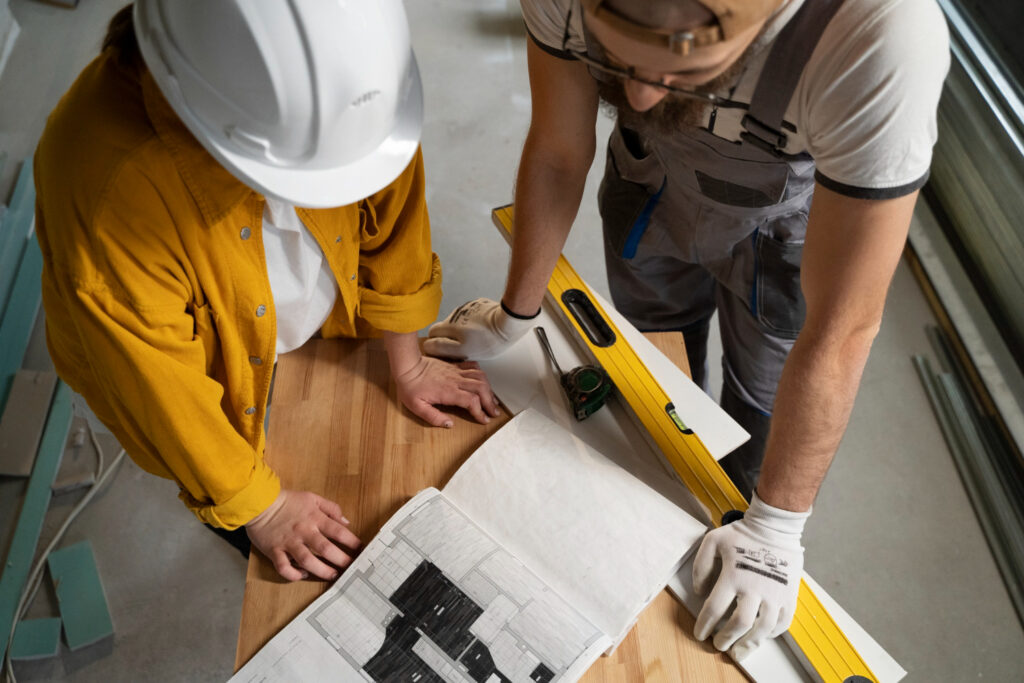
Cost of Kitchen and Bathroom Remodeling Permits
Your kitchen or bathroom remodel budget should also cover the costs of permits, which can vary based on the scope of your project. Permit costs typically fall within the range of $100 to $500 for minor remodels or surface-level changes like updating fixtures or countertops.
On the other hand, major remodels involving structural alterations or system overhauls, such as moving walls or rewiring, tend to incur higher permit costs, ranging from $500 to $2,000 or more.
It’s important to note that estimates fluctuate based on your geographical location and the specific details of your remodel. Different regions have varying fee structures, and the complexity of your project can influence the permit expenses. Therefore, when creating your budget, it’s advisable to research local permit fees and consult with relevant authorities to obtain accurate estimates.
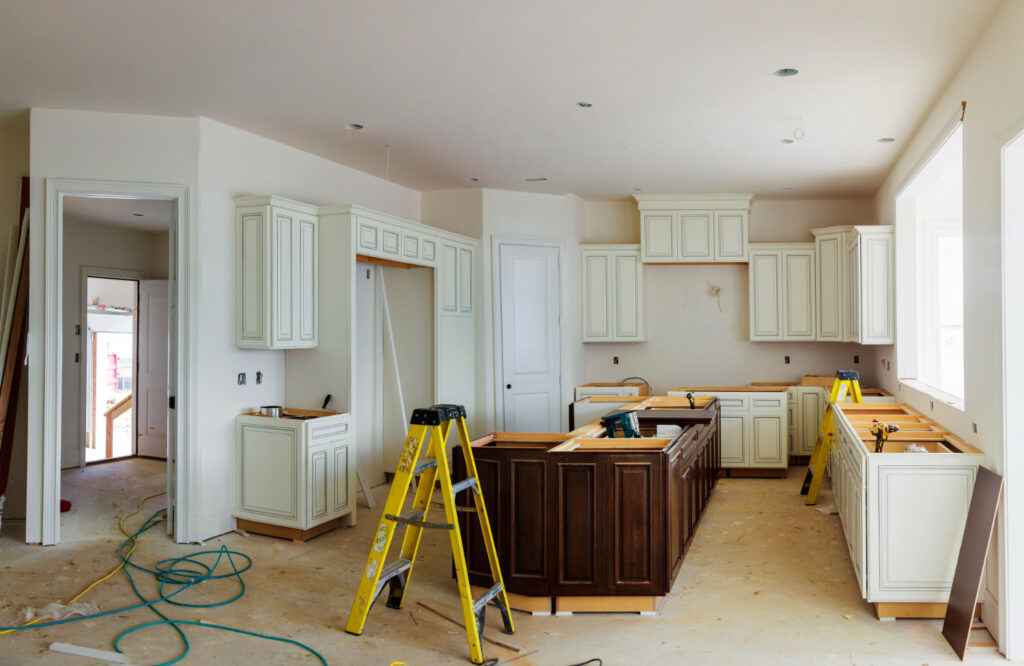
Minor Remodels: Permits and Costs
Now, you might be thinking, “But it’s just a small project, do I really need permits?” The answer: it depends. Even though minor remodels typically don’t require as many permits as major renovations, it’s vital not to overlook their significance.
Minor remodels typically include cosmetic changes such as replacing countertops, cabinets, or fixtures. While the permit costs may be lower for these projects, it’s crucial not to overlook their significance. Even seemingly small changes can impact electrical or plumbing systems, requiring permits to ensure safety and compliance.
Major Remodels: Permits and Costs
Major kitchen and bathroom remodels that involve substantial structural changes, like removing walls or relocating plumbing, require more extensive permits. These projects may also require additional inspections to ensure compliance with building codes. The costs for these permits can be significant, ranging from $500 to $2,000 or more.

Specialized Inspections and Additional Fees
Specialized inspections might sometimes be necessary for certain aspects of your kitchen or bathroom remodel.
These inspections ensure that specific components, such as electrical wiring or plumbing, meet industry standards. Remember that these specialized inspections may result in additional fees, so it’s essential to factor them into your budget.
Benefits of Obtaining Permits for Remodeling Projects
- Compliance with safety standards and building codes.
- Protection of your investment and the value of your home.
- Assurance that the work is performed by qualified professionals.
- Streamlined process for potential future resale of your property.
Permits signal the start of your remodeling process, so it must be dealt with properly. Don’t forget due diligence when researching what permits you need to start your project. Good luck!
Ready to give your kitchen and bathroom a cool makeover? Check out our Instagram. We’ve got awesome pictures, videos, and ideas to help you realize your remodeling dreams. Follow us today for a daily dose of inspiration!
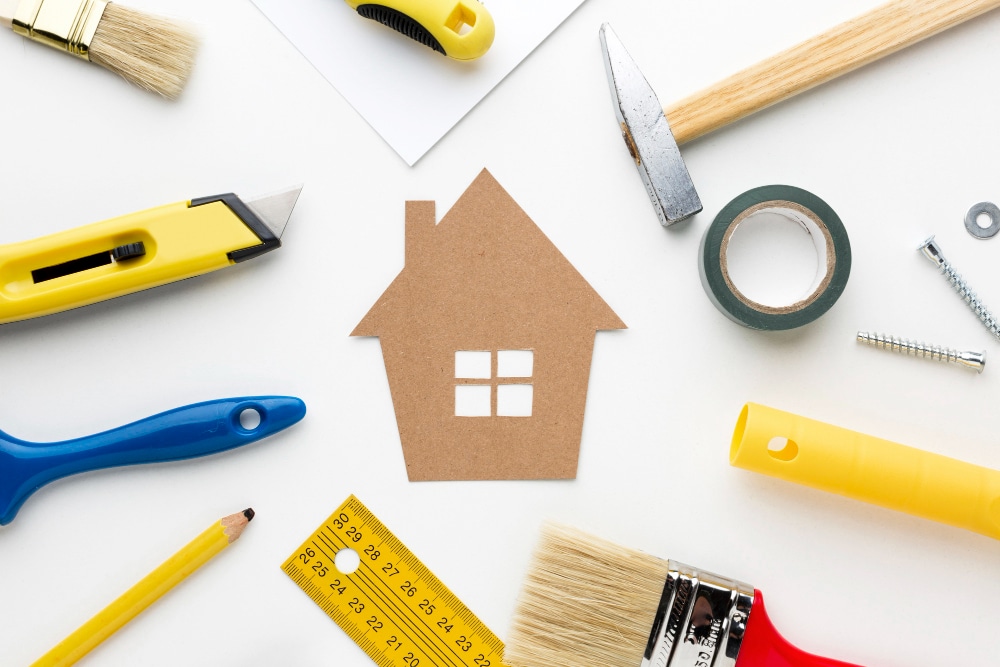
Frequently Asked Questions
Q1: Why do I need a permit to remodel my bathroom or kitchen?
A permit makes sure your remodel plan is safe and follows local building rules. It checks that everything is done right, like plumbing and wiring, to keep you and your home safe. Without a permit, you might have to redo the work or have trouble selling your home later.
Q2: How do I get a permit for my remodel?
To get a permit, you or your contractor must submit your remodel plans to your local building department. They will look at your plans to make sure they meet safety and building codes. After reviewing, they will give you the permit to start work. Sometimes, they might ask for more information or changes to the plan.
Q3: What happens if I remodel without a permit?
If you remodel without a permit, you might have to pay fines or remove the changes you made. It can also cause problems when you try to sell your home, as buyers might not want a home with unpermitted work. It’s best to get a permit to avoid these problems.
Q4: Can I do the work myself, or do I need to hire a professional?
You can do the work yourself if you feel confident and it’s allowed by your local codes. However, for complex tasks like plumbing or electrical work, it’s safer and sometimes required to hire a professional. They know how to do the work safely and meet the code requirements.
Q5: How much does a remodel permit cost?
The cost of a permit can vary depending on where you live and the size of your project. Small projects might cost between $100 to $500 for a permit, while big remodels could be $500 to $2,000 or more. It’s important to include this cost in your budget when planning your remodel.

